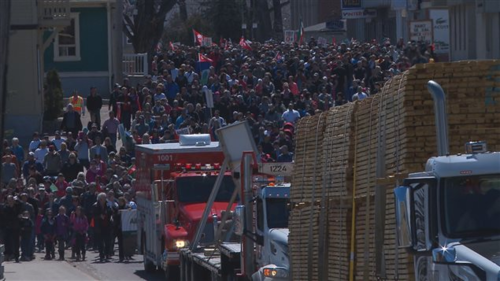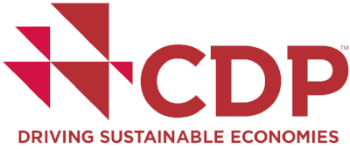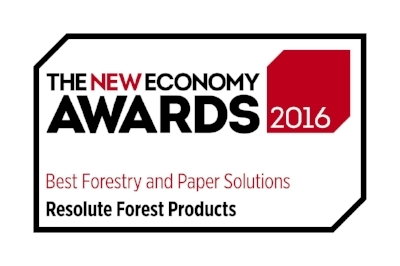The activists at Greenpeace are at pains to present a recent “report” on their boreal campaign as a major new work of original research, but in fact the document presents no new information, and merely rehashes the many distortions and falsehoods that have littered their irresponsible attacks on us for years.
Quite simply, Resolute has debunked or answered every substantive specific charge laid out in this document, in great detail, as they arose. And in each case we have done so in full transparent view of the public and the many stakeholders in the boreal. To what result? Numerous credible outlets that have investigated our dispute with Greenpeace and its allies—from the Wall Street Journal to the Washington Post to the National Post to Enquête—have raised questions concerning the group’s mischaracterization of the facts, its questionable tactics, its underlying motivations, or all of the above.
When Enquête, one of Canada’s leading TV news programs, confronted then-Director of Greenpeace Quebec, Nicolas Mainville about falsified images published and then retracted by Greenpeace, he deflected responsibility and responded, “It makes me laugh a bit.”[1]
When the Wall Street Journal asked Greenpeace about its history of distortion and impersonation, Greenpeace USA Executive Director Annie Leonard responded without addressing the specifics.[2]
And if the verdict of outside observers is not enough, consider that Greenpeace itself, when confronted in court about their many mistruths, was forced to concede in legal filings that the claims they made against Resolute were “non-actionable rhetorical hyperbole.” Strongly stated alarmist positions were described as matters of “non-verifiable subjective opinion,” and characterizations of Resolute’s activities in the region were described as “more figurative than literal.”
But let’s review the specifics once more:
On The Boreal and Climate Change
Greenpeace conflates forest management with deforestation. But Canada has strict laws governing the industry, and Resolute meets or exceeds them. Less than 0.2% of the Canadian boreal is harvested each year - twenty-five times less than what is disturbed annually by natural causes like forest fires and disease.[3] As for real deforestation, it’s practically nonexistent. Canada’s deforestation rate is virtually zero at 0.02%, due largely to commercial development and other industrial uses, not the forest products industry.
Greenpeace goes on to insinuate that Resolute’s harvesting operations in some way impair the boreal forest’s ability to absorb harmful carbon from the atmosphere. What they leave out is that harvesting and responsible forest management are recognized and encouraged by the U.N. Intergovernmental Panel on Climate Change to improve carbon capture.[4][5]
Greenpeace also attempts to paint Resolute as an unreliable partner for conservationists, noting as an apparent proof point that the company’s partnership with the World Wildlife Fund (WWF) had ended. But they grossly mischaracterize the natural course of that partnership. Resolute was a member of the WWF Climate Savers Program, a five-year agreement in which leading corporations establish ambitious targets to voluntarily reduce their greenhouse gas emissions (GHGs). In 2011, Resolute committed to some of the most ambitious goals in the industry - a 65% reduction of GHG emission levels by 2015 over 2000 levels. We exceeded our goal by the end of the agreement, and as of the end of 2016, we achieved a 73% reduction. We have also completely eliminated the use of coal on-site. Indeed, we have received North American and global recognition for our commitment to carbon reduction, responsible forest management, and our innovative sustainable development.
On Collaboration with First Nations Communities
Greenpeace claims to respect indigenous communities’ rights to economic self-determination. But many First Nations communities disagree. As Jack Picard, Band Council Member of the Innu Council of Pessamit put it: “Greenpeace, in our view, is an environmental group that goes to the extreme…We are fully capable of speaking for ourselves.”
Partnerships between Resolute and First Nations communities are also left out of the report. Resolute has strong partnerships with over 40 First Nations communities in regions where we operate, and in 2015 signed a historic Memorandum of Agreement with six First Nations partners resulting in $100 million in new business for First Nations communities.[6]
Greenpeace claims daily “collaboration” with First Nations, governments, and unions “to foster . . . healthy local communities,” but omits its many conflicts with those same groups, including the many representatives who have called out to the organization and its allies to stop campaigns that misinform the public and threaten the livelihood of forestry communities. Greenpeace has ignored stakeholders including First Nations communities, federal and provincial government officials, industry associations, and union leadership representing thousands of employees and retirees.
On Stakeholder Engagement
Greenpeace’s pretense at engagement and accountability is more than just dishonest, it’s insulting to the thousands of stakeholders who have reached out in good faith, imploring an end to the dishonest campaigns causing real harm to boreal communities.
Is it any wonder that, as the National Post reported, Greenpeace personnel need to disguise their identity when they travel in boreal forest communities?[7]
Resolute works with a wide range of stakeholders including First Nations communities, customers, employees, environmental and other non-governmental organizations ((E)NGOs), business partners, government officials, investors, and the general public every day.
On “Threatened Species Habitat” in the Boreal
Greenpeace insinuates that Resolute’s activities harm at-risk caribou populations. But almost 75% of the woodland caribou range is off limits to the forest products industry in the areas we operate, and in the area that is accessible, 38% in Quebec and a further 34% in Ontario have been set aside for conservation and other purposes.[8]
On Free Speech, “Suppress[ing]…Facts” and “Silencing” Critics
Greenpeace wrongly characterizes our lawsuit in U.S. federal court as an attack on the First Amendment. The lawsuit stems from the federal Racketeer Influenced and Corrupt Organizations (RICO) Act. Free speech does not protect libel and slander.
Greenpeace and their allies are trying to have it both ways. When defending their statements in Court, they refer to them as “non-verifiable statements of subjective opinion.” When it comes time to fundraise, these same statements are passed off as “facts.” Here is a link to our complaint.
Greenpeace also claims our suit is a “deliberate effort” to push them out of the public discourse. But the reality is that the litigation specifies actual harm that Greenpeace has caused — damage that Greenpeace itself has claimed exceeds $100 million.
On Doing Business with Resolute
Greenpeace has the tremendous gall to call out publishers for working with a “controversial company linked to the destruction of intact ancient forests” when the only groups claiming controversy are Greenpeace and its allies. The truth is that the boreal is not in any scientifically relevant sense “ancient”, and according to the United Nations, is in no way “endangered.” Resolute has been internationally recognized for its environmental stewardship and responsible practices in the region.
Greenpeace’s “report” adds up to almost nothing, comprised entirely of warmed over errors that we have already corrected elsewhere. It does nothing to address our serious legal charges, to account for the harm pointed out by so many independent journalists and boreal stakeholders, or to genuinely advance the conversation on sustainability in North America.
Standing up against false statements, threats and intimidation is a moral obligation. That obligation includes supporting our customers, stakeholders and the communities that live and work in the boreal, who stand with us.
[1] 2016. Resolute Forest Products Blog. TV Newsmagazine highlights Greenpeace misinformation. http://blog.resolutefp.com/2016/04/tv-newsmagazine-highlights-greenpeace-misinformation/
[2] 2016. The Wall Street Journal. The Case Against Greenpeace. https://www.wsj.com/articles/the-case-against-greenpeace-1466203663
[3] 2014. Government of Canada-Natural Resources Canada. The State of Canada’s Forests: Annual Report 2014. http://cfs.nrcan.gc.ca/publications?id=35713
[4] 2016 Resolute Forest Products Press Release. Resolute Files Racketeering Suit Against Greenpeace in U.S. Federal Court. http://resolutefp.mediaroom.com/2016-05-31-C-O-R-R-E-C-T-I-O-N-from-Source-Resolute-Forest-Products-Inc
[5]2007. Intergovernmental Panel on Climate Change. Contribution of Working Group III to the Fourth Assessment Report of the Intergovernmental Panel on Climate Change, 2007. https://www.ipcc.ch/pdf/assessment-report/ar4/wg3/ar4-wg3-chapter9.pdf
[6] 2015. Resolute Forest Products Press Release. Resolute Celebrates Ground-Breaking MOA with Six First Nations. http://resolutefp.mediaroom.com/news-releases?item=135452
[7] 2015. Financial Post. Battle for the Boreal.
http://business.financialpost.com/features/battle-for-the-boreal-forest-2
[8] 2016. Resolute calculations. Detailed calculations available upon request. Results from Resolute Geographic Information Systems (GIS) mapping analysis conducted in Ontario and the Fiche Thématique de Québec from the Quebec Forestry Office. http://www.ec.gc.ca.indicateurs-indicators/default.asp?lang=en&n=8390800A-1#pa3











